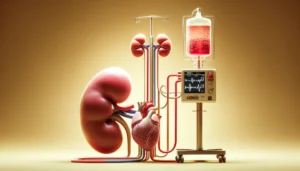
Hospital Readmissions in Patients Supported with Durable Centrifugal-Flow Left Ventricular Assist Devices
The study examines hospital readmissions in patients with centrifugal-flow left ventricular assist devices (CF-LVADs), highlighting the commonality and impact on patient outcomes. Analyzing data from 204 patients, 67.7% experienced heart failure (HF)/LVAD-related readmissions, mainly due to major bleeding, infection, HF exacerbation, and neurological dysfunction. Using machine learning models, several pre-, intra-, and post-operative factors were identified as predictors of readmission risk, which can guide strategies to improve patient management and outcomes.










